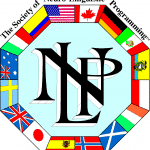NLP Mind Reading

In NLP Mind Reading is when you assume you know what another person thinks or feels in a given situation. And I know what you are thinking right now! Because you never completely or fully do, even if you think they or feel is a close representation of what another person thinks or feels. So, by its definition, any assumption about another person’s feelings or thoughts is mind-reading.
NLP Lack of Referential Index

What is NLP Lack of Referential Index?
Any unspecified noun, where it is impossible to identify the representative entity from the immediate context of its usage is called in NLP Lack of Referential Index. I.e., it is unclear as to whom or what the noun makes reference to. Unspecified nouns are nouns (the person/being or thing part) where you don’t know who or what they are specifically talking about. NLP calls this a lack of referential index. Don’t you love these terms? Not knowing who or what the person is talking about can result in misunderstanding. You (or they) tend to fill in the gaps with your (or their) own ideas and will walk into a mind read. In other words we have to guess and then act on that guess.
NLP Comparative Deletion

In NLP Comparative Deletion is any statement wherein a comparison is implied or given. But where one side of the comparison is omitted. When you accept a statement without understanding what’s behind it, you get stuck. Many “self esteem” issues come from deciding someone is better or more worthy at a general level rather than questioning the standard. “Better at what specifically?” If you don’t know what the standard is, how can you improve or disregard it?
NLP Unspecified Verb

What is the NLP Unspecified Verb?
A verb that deletes specific information in any way as to how, when or where is called in NLP Unspecified Verb. Unspecified Verbs are verbs (the doing part) in a sentence that don’t fully describe the action taking place. They don’t give enough information to let you know what is going on for them. People usually fill in the gap with their own experience – called Mind Reading. When people use unspecified verbs, all it means is that they do not have the descriptive way of representing what they mean and/or understand.
NLP Analogue Marking

In NLP Analogue Marking doesn’t have to do much with language patterns, but the more how you use your voice. In our experience it doesn’t hurt to become fully in control of your voice as it makes you bring our message to your client more easy and more smooth. A lot of the techniques we explained in previous blogposts are even more powerful when you apply Analogue Marking. Analogue Marking means that you set the directive apart from the rest or the sentence with some non-verbal analogue behavior.
NLP Indirect Elicitation Patterns

Indirect Elicitation Patterns are very useful in getting specific responses indirectly, without asking for them. Again, in the Meta Model we scope for information that is sent to us as the listener to be as complete as possible. The Milton Model is the opposite of it. In other words we as an NLP Practitioner or Master Practitioner plan our outcome very well. Where Direct Elicitation can result in much resitance or authority, in NLP Indirect Elicitation Patterns help you soften the communication. Using them results in a desired response indirectly. In other words, you are asking for an outcome without making it obvious that you are asking and there is a desired outcome. Fun, right?
NLP Meta Programs

In NLP Meta Programs are a process by which one sorts through multiple generalizations simultaneously. As such, Meta Programs control how and when a person will engage in any set of strategies in a given context. Here are key take aways for you:
Change of Time Verbs and Adverbs

Change of Time Verbs and Adverbs is a great article about helping you deeper understand the concept of presuppositions and the Milton Model. It helps you to quickly and easily change the perception of your client. In proper use of it, you are able to provide some kind of an embedded command to your client. It helps you presuppose something by using Change of Time Verbs and Adverbs. Take the following example: “You can continue to relax.”. It presupposes that you are already relaxing. Another one: “Are you still interested in doing business?”. It presupposes that you were at some point interested in doing business with me. Now we have provided you some examples already, let’s take a closer look on how to apply this technique. Here we go!
Mind Reading

I know, you know you have already learned a lot about Mind Reading in the Milton Model. Mind Reading is the phenomena where you act as if you truly know what is going on in the listeners head. Mind reading statements send the person that you are communicating with into a mild form of confusion at the conscious level. They will ask themselves: “How to they now, I know?” It creates a bit of confusion. And as a result the conscious mind is given something to think over. That is exactly you want to achieve. Make the conscious mind busy to seep in instructions to the unconscious mind. Now you reading this will think: “Is it that easy?” Yes it is!
Universal Quantifiers

Words such as all, every, always, nobody, etc. are Universal Quantifiers. Universal Quantifiers usually indicate overgeneralization. Remember we are in the land of, Trance, Hypnosis and the Milton Model. So the usage of Universal Quantifiers should be applied in such a way. Where the Meta Model learns us to reveal deleted, distorted or generalized information, here we are going to use Universal Quantifiers to be specifically vague and provide the listener ways that produce trance as well as other outcomes. Every word you are reading here can assist you in going deeper and deeper into a beautiful trance. And so should we utilize Universal Quantifiers.


